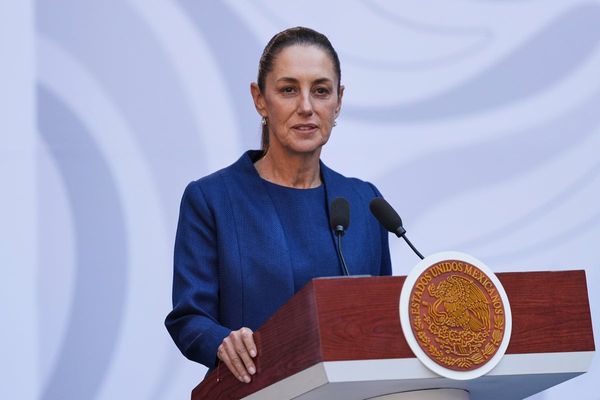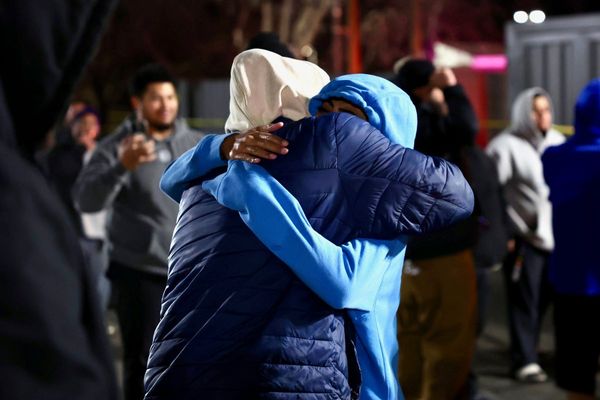
When feminist and homosexual activists in the 1970s asserted that “the personal is political”, experiences and identities once excluded from public life by ideas of privacy and shame became features in Australian national culture. A set of campaigns arguing for profound legal reforms and government protections produced an array of new political battlefronts. In the 1970s this was a radical change. As we regularly witness now, storytelling about intimate lives and identities and the political contests that follow have become a regular part of our national debate.
It is common to tell this 50-year story as a history of incremental change and occasional “backlash”. Yet this pleasing arc of liberalising progress conceals more than it reveals. This story makes our current settlements concerning gender, sexuality and the state seem inevitable, rather than the product of continual and ongoing struggle.
And a simple story of progress hides the ways in which those who have sought to reinforce a “traditional” gender and sexual order have been players in this landscape from the start. Distressed fathers and “stay at home” housewives have proved just as adept at telling stories about intimate suffering to power their activist campaigns.
Often, they have used these techniques to secure reforms and funding that work against feminist and LGBTQIA+ ambitions.
Making the personal political
In the early 1970s, feminist and homosexual activists aimed to take political control of a set of issues that had either been debated on their behalf or governed in a framework that implied they should be hidden from view. Feminists described their experiences of backyard practitioners and ill-trained doctors to argue for safe and feminist-informed abortion provision. So too, women began to tell stories about domestic violence in public. Feminists mobilised these stories in order to make an argument to fund women’s refuges. In doing so, they revealed that the private home could be a space of danger — not safety — for women and children.
Similarly, gay and lesbian activists described the acute miseries of a life lived in secret and the constant threat of public exposure in order to make the case for the decriminalisation of sex between men as well as the transformation of a social order that legitimated discrimination and oppression.
These activists fused these new modes of public storytelling together with those liberal watchwords of equality and justice to argue for the state to intervene in private life where needed while also reforming the criminal laws that placed limits on their lives. It produced a revolution in how questions of intimate life, sex, abortion and relationships would be governed. This was an international charge and in many ways, Australia led the way.
Slowly, state by state, laws criminalising sex between men were reformed. The legal status and provision of abortion was unevenly liberalised. The Family Law Act, passed in 1975 by the Whitlam government, was hailed as the most “modern” legal framework to manage the dissolution of a marriage in the world, and in many ways it led the international push to create divorce with dignity. Feminists and later gay activists found their way into the machinery of government, producing that Australian invention, the “femocrat” and later, during the HIV/AIDs epidemic, the “poofycrat”. They bought hard-won knowledge into policy conversations, shaping outcomes at all levels of government.
We now live in a world that has been remade by these interventions and political struggles. Feminist and LGBTQIA+ knowledge is now part of the process of governing, and questions of sexual life and gender identity shape our political discourses. As we write, pride month is upon us, demonstrating that not only can gay and lesbian lives be now lived in public, but that the celebration of LGBTQIA+ “pride” is so culturally legitimate that both corporate and state support can almost be taken for granted. So too, the transformation of both the social norms and legal frameworks that shape women’s lives have been substantive.
The problem with narratives of progress
It is tempting, then, to narrate this history as a story of steady, incremental progress (albeit with some backsliding along the way). This has most purchase in LGBTQIA+ storytelling, where the crowning achievement of “marriage equality” in 2017 forms the apex of this story. For feminist histories, the story can be a little more complex. The campaigns to decriminalise abortion in the past decade often framed decriminalisation as the final step in a history of liberalising progress. However, the frustrations that many expressed in the national debate about domestic violence carry a sense that the promise of progress remains unfulfilled. Even so, this story of progress remains powerful, even if only to register that its promises are (as yet) incomplete.
Yet stories of progress, while they might be helpful politically, make woefully inadequate history. They conceal the way in which this new kind of “personal politics” created many new political identities, whose claims for support and social transformation are sometimes difficult to adjudicate between.
The Yes campaign for marriage equality faced difficult decisions about how to respond to fear-mongering predictions that same-sex parents posed a threat to the gender order. Campaigners for the No side often waved the possibility of gender diverse kids as the apparently nightmarish future that would emerge if reform was achieved. Most Yes campaigners chose to not give this criticism political oxygen, fearing it would undermine support. For many gender diverse folk, however, this felt like a profound abandonment by a political movement that espoused queer pride as a foundational premise. Indeed, this was a strategy that implicitly asked some in the LGBTQIA+ community to “wait their turn” in the unfolding story of progressive change.
The story of progress also conceals the ways in which this mode of making politics has never been the exclusive possession of feminists and sexual dissidents. Those seeking to conserve the norms of family life so forcefully problematised by this politics have also been adept practitioners of its strategies, and sometimes more effectively. The passing of the Family Law Act in 1975 is often hailed as a feminist success story. Prior to this reform, the High Court had affirmed in the late 1960s that a woman had a limited duty to ‘obey’ her husband in marriage. A woman’s choice to leave an unhappy or violent relationship would most likely be legally configured as a ‘fault,’ and thus shape her financial future. No-fault divorce in combination with the single mother’s benefit meant that Australian marriage became a less coercive institution.
However, our research has revealed it was not only feminists that were seeking these reforms. Political groups representing divorced men were seeking the removal of fault from divorce law as well. From the late 1960s, they argued that the limited financial obligations to a former wife and their children in divorce were an imposition on male freedom and dignity. Indeed, the ideal of “dignity in divorce”, advanced by feminists, legal reformers and politicians alike from around 1972, had actually been popularised in Australia by this determinedly masculinist activism nearly a decade before. Pro-divorce men seeking to expand their freedoms were part of the debate over divorce reform from the beginning.
Proliferation and paradox
A story of progress can offer succour to those whose rights have not been recognised, mobilise groups to continue to campaign for change, or justify specific settlements as an outcome of a political debate. Yet it can also conceal the ways in which public storytelling through gender and sexual identity is neither inherently “progressive” or necessarily the best mechanism to address injustice and inequality for the most marginalised. Making a politics out of the experiences of personal, sexual and intimate stories has, we might say, produced a proliferation of political identities and a set of paradoxical historical dynamics. While it may make some Australians feel better about their nation, it cannot help them explain their political present.
Personal Politics: Sexuality, Gender and the Remaking of Citizenship in Australia by Leigh Boucher and Michelle Arrow (along with co-authors Barbara Baird and Robert Reynolds) is in bookshops now. It is the culmination of a nine-year collaboration between the authors and offers a provocative history of gender, sexuality and Australian political life from the 1970s until today.







